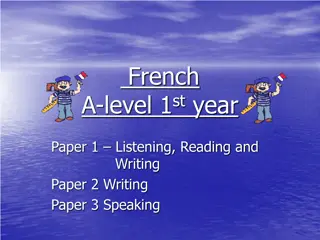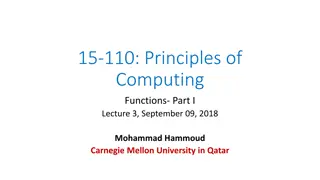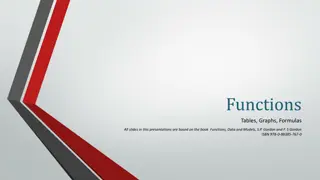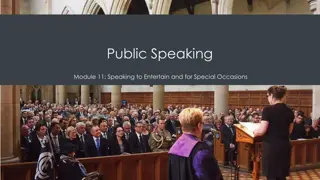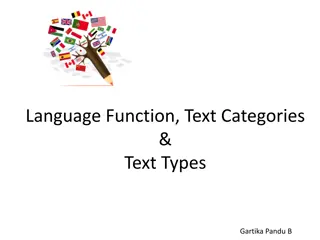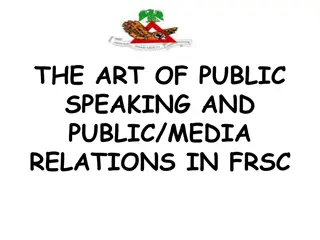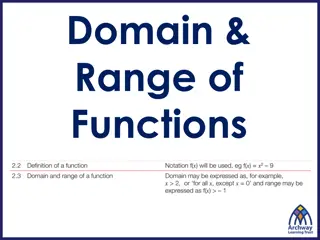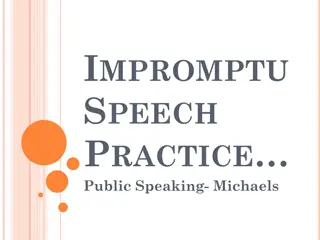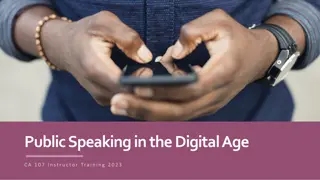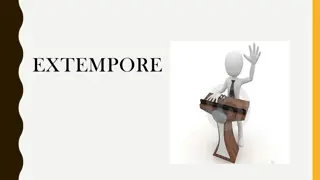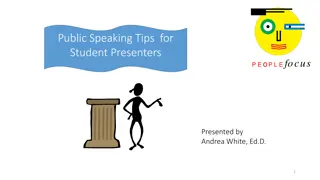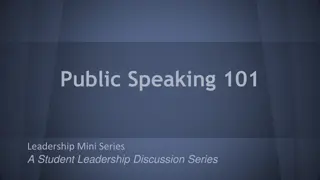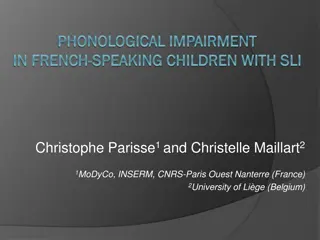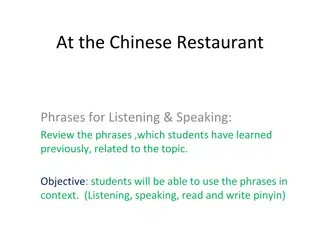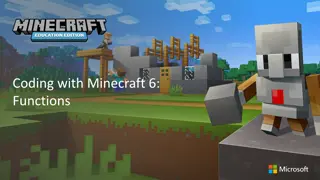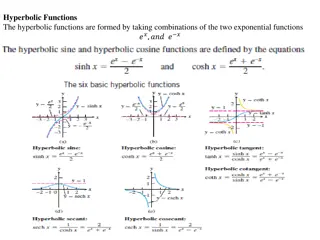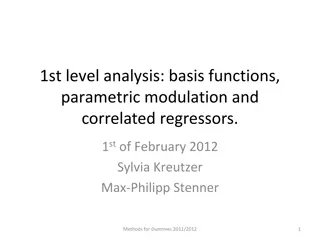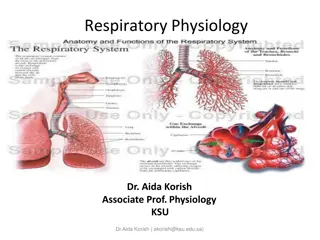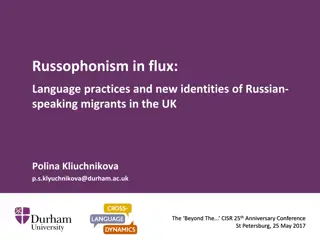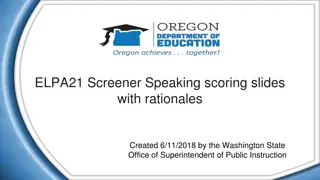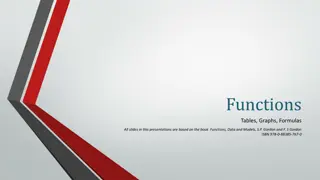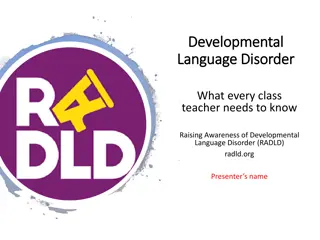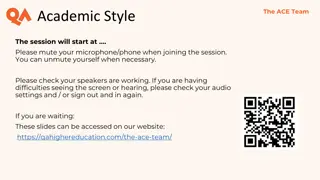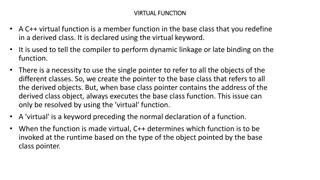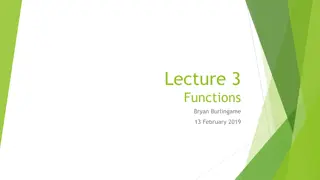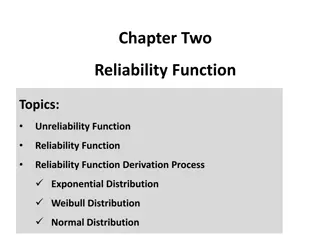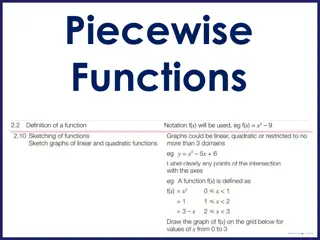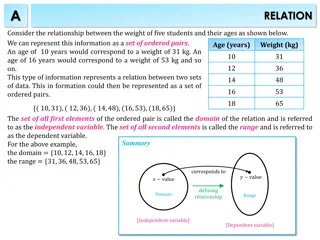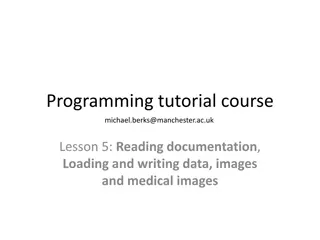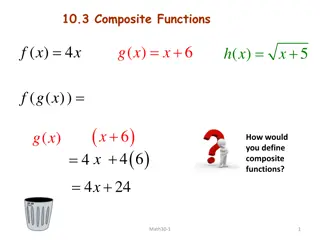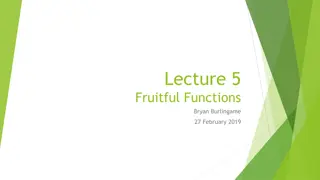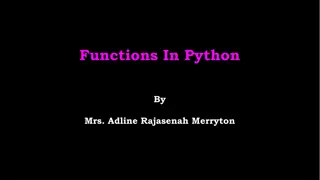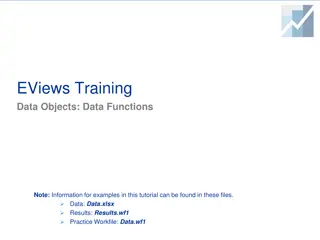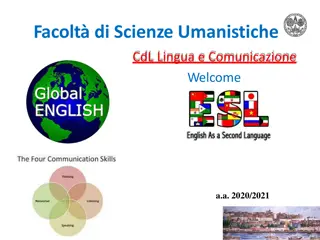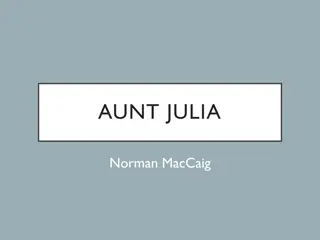Understanding Language Functions and Types in Speaking
Explore the key functions of language, types of language functions such as expressive and directive, and learn how to use language functions effectively in speaking. Compare and contrast different language elements like determiners, adverbs, linking expressions, nouns, and verbs to enhance your communication skills.
Download Presentation

Please find below an Image/Link to download the presentation.
The content on the website is provided AS IS for your information and personal use only. It may not be sold, licensed, or shared on other websites without obtaining consent from the author. Download presentation by click this link. If you encounter any issues during the download, it is possible that the publisher has removed the file from their server.
E N D
Presentation Transcript
Speaking and Language Functions Faeza Adnan Salih University Lecturer faezasalih@uobaghdad.edu.iq
--------------------- --------------------- --------------------- Agenda --------------------- --------------------- --------------------- --------------------- What are functions of language? --------------------- What are the main types of language function? How can we use language functions in speaking?
Language Functions Language function is a part of the language. Each language has its function, which is used to communicate.
Types of language functions Expressive Directive Informative
Compare and Contrast 1. Determiners Words such as both, all, neither, and none can show how two items are the same Both Asia and Europe are continents. Neither boy plays football. 2. Adverb and adverb phrases Words such as in common, as well, also, in the same way, so do, like and likewise Jason is an optimist. Jude is an optimist, too. Jason and Jude have being an optimist in common.
Compare and Contrast 3. Linking expressions When we evaluate two things using comparative adjectives, we must necessarily put both of those items in the same phrase. Asia is larger than Europe. Asia is huge whereas Europe is small. Jason is more optimistic than Jane. Jason is an optimist, but Jane is a pessimist. Jason is an optimist while Jane is a pessimist. Although Jason is an optimist, Jane is a pessimist.
Compare and Contrast 4. Nouns and verbs Adjectives are great ways of comparing two items, but you can also use nouns and verbs to show similarities and differences. Some verbs that compare and contrast are differ, contrast, compare, vary, change, equate, equal, match, and parallel. Asia contrasts with Europe in size. Jason and Jude match in temperament.
Compare and Contrast 4. Nouns and verbs Some nouns that compare and contrast are difference, similarity, contrast, comparison, variance, dissimilarity, change, resemblance, likeness, parallel, connection, and match The temperaments of Jason and Jude are a match. Asia and Europe have a dissimilarity in size.
Compare and Contrast 5. Degrees of similarity The following phrases express degrees which can be combined with an adjective to say just how similar or different two items are: absolutely the same/different, exactly the same, practically the same/opposite, basically the same/different/opposite, nearly the same, more or less the same/different, quite similar/different, completely the same/different, totally the same/different, slightly similar/different, and very similar/different. Juan is slightly different than Kevin. Abdul and Hind are opposite in their speech volume.
Ask for Something Excuse me. Could you tell me where ... is? Excuse me. Can you tell me...? Do you know...? You wouldn't know..., would you? Do you happen to know ..? I'd like to know..., please. And there's another thing I'd like to know... I would be interested to know... Please could you tell me.. Examples: Could you tell me when the next train leaves? Do you happen to know when Sandy arrives home?
Expressing Opinions I think that . I don t think that . I ve always thought that In my opinion, . From my point of view, . As far as I m concerned, .. I strongly believe that . I have my doubts about .
Expressing Opinions I totally agree. I absolutely agree with you. I agree up to a point, but I m not sure I agree with that. I don t really agree. I don t agree at all. Actually, I disagree with you. I completely disagree.
Expressing Opinions Let me see .. Well, I mean .. It depends, really . I think that depends on various things . I m not sure, but I suppose I m not quite sure what I think about that .. I ve never thought about that before I don t know much about this, but I think . That s an interesting question ..
Suggesting Words such as should, why don t you, ought to, If I were you, I would , suggest, recommend You should try to practice in English. Why don t you join an English club? You ought to read more. If I were you, I would sleep early. I suggest visiting to the Eiffel Tower. (We should all go) I suggest that you visit the Eiffel Tower. (I m not going) I recommend the Lasagne. (It s a very good dish to choose in the restaurant)
Asking for Advice Advise (v.) I advise you to buy a good dictionary. Advice (n.) Uncountable noun. We can t say an advice. Instead, we say some advice or a piece of advice Let me give you some advice She gave me a very good piece of advice: to buy a good dictionary.
Giving Advice There are many ways of giving advice in English. Here are some common advice: I think you should... (do). You could... (do). Why don't you... (do)? If I were you, I'd... (do). Have you tried... (doing)? You ought to (do) It s a good idea to
Giving Advice Examples someone says "I m having problems learning English", you could say: If I were you, I d sign up for an English course. Have you thought about going to the UK for a couple of weeks? You really ought to watch English television. Why don t you read more English books?
Refusing I'm afraid not. I'm sorry it's not possible... I'm afraid I can't / don t like. I would rather not Examples: Would you like to see a film tonight? I m afraid I can t go out tonight. I ve got a test tomorrow. Why don t we have some Indian food? Sorry, but I don t like Indian food. How about watching a movie tonight? I d really rather not watch the movie tonight.
Complaining In a shop You are in a shop and the assistant gives you the wrong change. Excuse me, I think you ve giving me the wrong Change. Sorry, I think this change is wrong. I gave you $20, not $10.
Complaining In a hotel Excuse me, but there's a problem with the heating in my room. Sorry to bother you, but I think there's something wrong with the air/conditioning. I'm afraid I have to make a complaint. Some money has gone missing from my hotel room. I'm afraid there's a slight problem with my room / the bed hasn't been made."
Apologizing Sorry I'm very/awfully/so/extremely sorry. Excuse me. Sorry, (it was) my fault. I do apologize. Please accept my apologies. I m sorry but.... I apologize for but Forgive me for but
Making Requests Asking someone to do something for you Could you open the door for me, please? Would you mind opening the door for me, please? Can you open the door for me, please? Speaking tip: Could and Can are followed by the verb without to. Would you mind . is followed by the verb and ing.
Making Requests Asking if you can do something Can I use your computer, please? Could I borrow some money from you, please? Do you mind if I turn up the heating? Would you mind if I turned up the heating? Speaking tip: Could is more polite than can. Do you mind if . is followed by the verb in the present tense. Would you mind if .. is followed by the verb in the past tense.
References Functional language. Asking/giving for an opinion (2018). Retrieved from https://busyteacher.org/11943-functional-language-givingasking-for-an-opinion.html Hayat, T. (2018). Language functions in English and vocabulary. Retrieved from https://www.scribd.com/doc/16389593/Language-Functions-in-English Hill, J. D. & Miller, K.D. (2013). Classroom instructions that work with English language learners. Retrieved from http://www.ascd.org/publications/books/114004/chapters/Academic-Language.aspx Teaching language functions (2016), Retrieved from https://www.ukessays.com/essays/teaching/teaching-language-functions.php Verner, S. (2018). Going beyond-ER: five advanced techniques for comparing and contrasting in English. Retrieved from https://busyteacher.org/23668-compare- contrast-english-5-advanced-techniques.html



